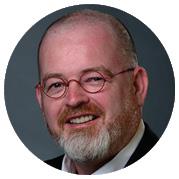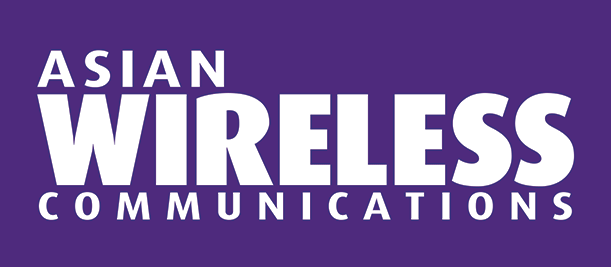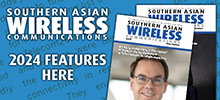19 July 2022

Who was your hero when you were growing up?
A difficult one- my heroes were generally from the world of motorsports growing up with names like Mike Hailwood, Joey Dunlop and Michael Schumacher, who all held the racing champion positions at one time or another. Growing up in Ireland, motorcycle road racing captured my imagination, and for those who know the place, The Isle of Man Tourist Trophy races were the pinnacle of the sport. The combination of technology and individual commitment required for success in this arena did not inspire me to participate. Still, it shows how attention to detail and single-minded focus must be combined with team building, even in what might appear to be an individual domain. Schumacher’s success as a driver at Ferrari had everything to do with his ability to build a team focused on excellence. Time and time again, we have seen egos in sports break a team dynamic and ultimately undermine potential. It is true in any human pursuit.
What was your big career break?
There were two formative points; the first was when the job I had applied for out of College with Digital Equipment in Ireland fell through, and I was asked if I would consider relocating to Germany instead. The option opened my eyes to the opportunities of an international career and the potential personal development that could arise from that experience. Secondly, because of post-merger organizational conflicts, I had the good fortune to experience mentoring and support from an Organizational Development specialist called Allon Shevat. It was not all rainbows and sunshine; it was a process of understanding the complexity of any post-M&A environment and establishing a clear plan for managing the complex and emotionally charged situation, which is certain to occur when organizations face massive changes. Allon’s guidance helped mature me as a leader and enabled me to steer a path through fast-changing organizations and better handle risk management.
What’s the best technological advancement in your lifetime?
The advent of the smartphone seems so obvious, but when we think about the changes it continues to bring to lives and lifestyles around the world, I would have to place it at the top of the list. The ability to have the internet available in the palm of your hand in a form factor that has become ubiquitous in such a short period. That this device gives us communication, mapping, entertainment, and healthcare capabilities with a near-global coverage footprint is nothing short of the science fiction that we were promised in the 50s and 60s. Certainly, the personal computer had an impact; the internet itself has been revolutionary, but putting the capabilities of the personal computer connected to the global information and economic resources of the internet into billions of hands across the world is transformational. Not everyone perceived those transformational changes as positive. Still, when I see the personal impact this technology has on my friends and family, when I look around me in Singapore and see people from every walk of life find tools to make their life easier, can find entertainment in their language, watch sports events, transfer funds, pay bills, I see a technological enabler which is a platform for innovation and a social leveller, giving access to the largest number of people at affordable cost.
What’s the best piece of advice you’ve been given?
“You can learn much from a bad manager.” These were the parting words of a manager in one of my first positions in the UK as he was saying his last goodbyes. At that time, I was unsure what he meant, but I have subsequently realized that there is indeed a lot more to learn from failure than accidental success. Success can look easy, and its causes are not always clear. Failure, on the other hand, is usually more evident in its causes and invites a post-mortem. Who examines their successes to understand whether they were intended or accidental?
What would you do with US$1m?
Although it is not a large sum to invest in the technology sphere today, I would target the applications for connected healthcare solutions to enable the elderly to live the most fulfilling and independent lives possible. The pandemic has shown globally how tenuous the connections of travel and supply chain can be. Caring for family and loved ones has been helped by the availability of telemedicine and the broader availability of video calling. Still, so much more can be achieved through sensing and monitoring. Timely intervention and proactive warning can prevent crises from developing. In the ‘new normal’, I would like to see patients arrive at a hospital with the ER already having access to vital signs, medication, and possibly contact tracing information. There are many innovations in the sensing and monitoring space for illnesses like diabetes, liver disease, or thyroid disfunction, which can be added to the basic vital sign capture.
If money was no object, where would you live?
Northern hemisphere winter in New Zealand, South Island ideally. Northern hemisphere summer France or Italy, autumn, and spring in Texas. Growing up in Ireland, I feel I have experienced enough cold, wet weather for a lifetime, and now living in Singapore, I am testing my tolerance for hot, humid weather. I think I am fundamentally a temperate creature.
What’s the strangest question you’ve been asked?
Many years ago, I was giving a presentation in Korea at a Hyundai plant in Ulsan. I was speaking through an interpreter to a large group, including two vice presidents. At the time, I was working on a software integration toolset called ‘jabberwocky’ at Digital Equipment. I had not yet moved off my introductory slide when one of the VPs stood and asked a question to the interpreter. The dialogue went back and forward a couple of times before the interpreter turned to me with a pained expression to ask, “They say that in Korea we choose inspirational or encouraging names for our products like ‘lucky goldstar’, but we have looked up this name ‘jabberwocky’ for your product, and it is a word which means nothing! How can you name your product with such a name?” This was my first business trip to Asia and my second presentation in what was to be a three-week tour of potential customers. I had learned an essential lesson on cultural awareness. Product names would always be a touchy subject for me from that day on.
If you could have dinner with someone from the past or present, who would you choose?
Robert Strange McNamara, American Secretary of Defense for much of the 1960s, was once a chairman of the Ford Motor Company and head of the World Bank. His experience and perspectives throughout a lifetime in the limelight of both the business and political realms made me curious. McNamara was subject to violent criticism for his role in American actions in Vietnam and his attempts to exercise civilian control over the Pentagon. Yet, he still managed to be reflective in his later years, participating in the retrospective dialogue and exploring the faults in his actions under both President Johnson and Kennedy. He reminds me that good intentions do not always equate to good results.
Which law would you most like to change?
I would like to see the barriers removed to allow presidential candidates in the United States to be other than ‘natural-born citizens’ of the United States. The change would support its long-standing practice of embracing immigrants.






